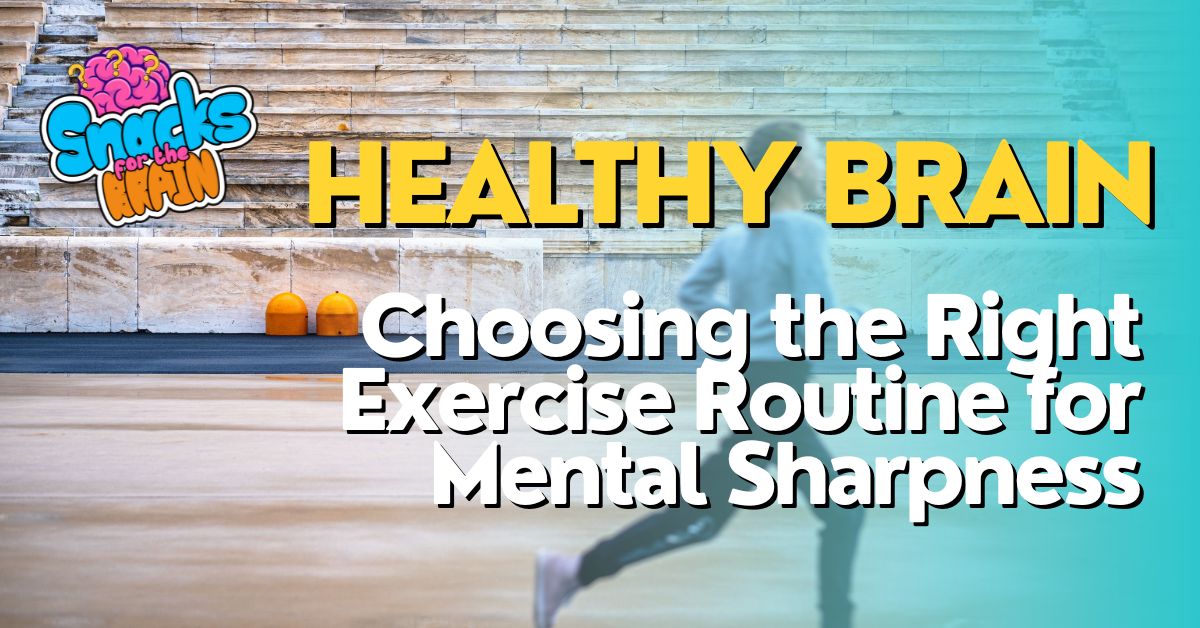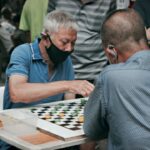Crosswords and word games have been popular forms of entertainment for decades. They are puzzles that involve filling in words or letters in a grid, based on clues provided. Crosswords typically consist of intersecting words, with clues given for each word. Word games, on the other hand, can take various forms, such as anagrams, cryptograms, or word searches.
These games have a wide appeal and can be enjoyed by people of all ages. They provide a mental challenge and a sense of accomplishment when solved. Crosswords and word games are not only entertaining but also beneficial for exercising the brain and improving language and logic skills.
Key Takeaways
- Crosswords and word games are popular forms of puzzles that challenge language and logic skills.
- Exercising language and logic through puzzles can have numerous benefits for cognitive development.
- Crosswords and word games can help enhance vocabulary and improve critical thinking skills.
- There are various types of crosswords and word games to try, with tips and strategies available for solving them.
- Crosswords and word games are fun and educational activities suitable for all ages, with a promising future in the digital age.
The Benefits of Exercising Language and Logic
Crosswords and word games are excellent tools for exercising language and logic skills. When solving these puzzles, players need to think critically, analyze clues, and come up with the correct answers. This process helps improve problem-solving abilities and enhances logical thinking.
In addition to logic skills, crosswords and word games also help improve language skills. Players are exposed to a wide range of vocabulary and must use their knowledge of words to fill in the grid correctly. This exposure to new words helps expand one’s vocabulary and improves spelling and grammar skills.
These language and logic skills developed through crosswords and word games can be applied in everyday life. For example, the ability to think critically and analyze information is essential in decision-making situations. Improved language skills can also benefit individuals in their professional lives, as effective communication is crucial in many fields.
Enhancing Vocabulary through Crosswords and Word Games
One of the significant benefits of solving crosswords and word games is the opportunity to enhance one’s vocabulary. These puzzles expose players to new words that they may not have encountered before. By figuring out the meaning of these words based on the given clues, players expand their knowledge of the English language.
To make the most of crosswords and word games for vocabulary enhancement, players can adopt a few strategies. First, they can keep a notebook or use a vocabulary app to jot down new words they come across while solving puzzles. They can then look up the definitions and examples of usage to fully understand the words.
Another strategy is to actively seek out puzzles that focus on specific themes or topics. For example, if someone wants to improve their knowledge of science-related vocabulary, they can look for crossword puzzles or word games that revolve around scientific terms. This targeted approach can help individuals learn new words in a more focused and efficient manner.
Improving Critical Thinking Skills with Word Puzzles
Crosswords and word games are excellent tools for improving critical thinking skills. These puzzles require players to think analytically, make connections between clues and answers, and come up with logical solutions. By regularly engaging in these activities, individuals can develop their critical thinking abilities.
For example, when solving a crossword puzzle, players need to carefully consider the clues provided and think about possible answers that fit the given criteria. They must evaluate different options and eliminate incorrect choices based on their understanding of the clues and the overall structure of the puzzle.
These critical thinking skills developed through crosswords and word games can be applied in various problem-solving situations. Whether it’s analyzing information, making decisions, or finding creative solutions to challenges, individuals who regularly engage in these puzzles are likely to have an advantage.
The Role of Crosswords and Word Games in Cognitive Development
In addition to improving language and logic skills, crosswords and word games also play a significant role in cognitive development. Research studies have shown that engaging in these activities can help improve memory, attention span, and overall cognitive function.
One study conducted by researchers at the University of Exeter found that individuals who regularly solve crosswords have better cognitive function than those who do not engage in such activities. The study followed a group of participants over a period of time and found that those who regularly solved crosswords showed a slower decline in cognitive abilities compared to those who did not.
Another study published in the Archives of Neurology found that engaging in mentally stimulating activities, such as solving puzzles, can delay the onset of dementia and Alzheimer’s disease. The researchers concluded that these activities help keep the brain active and may contribute to the maintenance of cognitive function in older adults.
The History of Crosswords and Word Games

Crosswords and word games have a rich history that dates back over a century. The first known crossword puzzle was created by Arthur Wynne and was published in the New York World newspaper on December 21, 1913. This puzzle was a diamond-shaped grid with simple clues, and it quickly gained popularity.
Since then, crosswords have evolved and become more complex. They have become a staple in newspapers and magazines worldwide, with dedicated crossword enthusiasts eagerly solving them every day. Word games, too, have evolved over time, with new variations and formats being introduced to keep players engaged.
Different Types of Crosswords and Word Games to Try
There are various types of crosswords and word games that players can try to keep their puzzle-solving skills sharp. Some popular types include cryptograms, anagrams, acrostics, and word searches.
Cryptograms are puzzles where each letter in the puzzle is replaced with another letter or symbol. Players must decipher the code to reveal the hidden message. Anagrams involve rearranging letters to form new words or phrases. Acrostics are puzzles where certain letters in each line spell out a hidden message or quote. Word searches involve finding words hidden within a grid of letters.
To find new puzzles to try, players can look for puzzle books at bookstores or libraries. There are also numerous websites and apps that offer a wide range of puzzles for free or for a small fee. Trying different types of puzzles can help keep the experience fresh and challenging.
Tips and Strategies for Solving Crosswords and Word Games
For beginners, solving crosswords and word games can be a bit daunting. However, with some tips and strategies, anyone can become a proficient puzzle solver.
One tip is to start with easier puzzles and gradually work your way up to more challenging ones. This allows you to build confidence and develop your skills at a comfortable pace. Additionally, it’s helpful to read the clues carefully and try to understand the context or theme of the puzzle. This can provide valuable hints for finding the correct answers.
Another strategy is to fill in the easier clues first. By solving the clues that you are confident about, you can start filling in letters and words in the grid, which can then help you solve the more difficult clues. It’s also beneficial to use a pencil instead of a pen when solving puzzles, as this allows you to make changes if needed.
For more advanced solvers, it’s important to develop a systematic approach to solving puzzles. This may involve scanning the grid for any obvious answers, looking for patterns or repetitions in the clues, or using cross-referencing techniques to narrow down possibilities. It’s also helpful to keep a mental database of common crossword words and phrases, as these often appear in puzzles.
Crosswords and Word Games as a Fun and Educational Activity for All Ages
Crosswords and word games are not only beneficial for cognitive development but also provide a fun and educational activity for people of all ages. They can be enjoyed individually or as a group activity, making them suitable for family game nights or classroom activities.
For children, solving puzzles can help improve their vocabulary, spelling, and problem-solving skills. It can also be an enjoyable way to learn new words and concepts. Parents and teachers can incorporate puzzles into their daily routines by providing age-appropriate puzzles and encouraging children to solve them.
For adults, crosswords and word games can be a relaxing and mentally stimulating activity. They provide a break from daily routines and offer a sense of accomplishment when solved. Adults can challenge themselves by trying more difficult puzzles or competing with friends or family members to see who can solve a puzzle the fastest.
The Future of Crosswords and Word Games in the Digital Age
In the digital age, technology has had a significant impact on the world of puzzles. There are now numerous websites, apps, and online communities dedicated to crosswords and word games. These platforms offer a wide range of puzzles, from traditional crosswords to interactive word games.
The future of puzzles in the digital age is likely to continue evolving. With advancements in technology, we can expect more interactive and immersive puzzle experiences. Virtual reality and augmented reality technologies may be used to create new types of puzzles that provide a more engaging and dynamic experience.
Additionally, the digital age has made it easier for puzzle enthusiasts to connect with each other and share their love for puzzles. Online communities allow players to discuss strategies, share tips, and even create their own puzzles. This sense of community adds another layer of enjoyment to the puzzle-solving experience.
In conclusion, crosswords and word games are not only entertaining but also provide numerous benefits for language development, logic skills, critical thinking, and cognitive function. They have a rich history and continue to evolve in the digital age. Whether you’re a beginner or an experienced solver, there are endless opportunities to engage in these puzzles and reap the rewards they offer. So grab a pencil or open an app, and start exercising your brain with some crossword or word game fun!
If you’re a fan of crosswords and word games, you’ll love this related article on Intelligence’s N Hacks blog. Titled «Exercising Language and Logic,» it delves into the benefits of engaging in these brain-teasing activities. From improving vocabulary and language skills to enhancing problem-solving abilities, crosswords and word games offer a fun and effective way to exercise your brain. Check out the article here to discover more about how these games can boost your cognitive abilities.
FAQs
What are crosswords and word games?
Crosswords and word games are puzzles that involve filling in words or letters into a grid or board to form words or phrases. These games are designed to test and improve language and logic skills.
What are the benefits of playing crosswords and word games?
Playing crosswords and word games can improve vocabulary, spelling, and language skills. It can also enhance cognitive abilities such as memory, problem-solving, and critical thinking.
Are there different types of crosswords and word games?
Yes, there are various types of crosswords and word games, including cryptic crosswords, acrostics, anagrams, word searches, and Scrabble.
Can playing crosswords and word games help prevent cognitive decline?
Yes, studies have shown that playing crosswords and word games can help prevent cognitive decline and reduce the risk of developing dementia and Alzheimer’s disease.
Are there any downsides to playing crosswords and word games?
There are no significant downsides to playing crosswords and word games. However, excessive playing can lead to addiction and neglect of other important activities. It is essential to maintain a balance and play in moderation.





